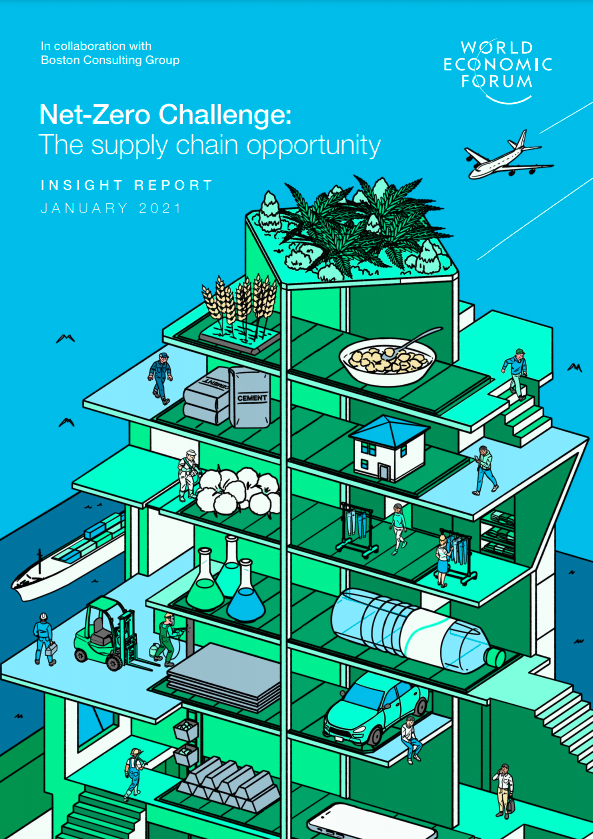The World Economic Forum in collaboration with Boston Consulting Group developed this report that shows how companies can decarbonize their supply chains.
Five years after the adoption of the Paris Agreement, COVID-19 has reshaped the world and brought us to a crossroads. The health, social and economic consequences of this global pandemic on top of the increasingly urgent climate crisis have taken us to an inflection point. How we choose to respond to these crises will determine the pathway to our net-zero future. To succeed, the twin challenges of COVID-19 and climate change must be addressed together, with zero-carbon solutions ready to accelerate our recovery to a healthier, more resilient future.
In 2020, we saw a temporary drop in emissions as a result of COVID-19, at around 5–10% compared to 2019 – the largest since the Second World War. But to get on a long-term path to limit warming to 1.5°C, we need a structural transformation that achieves global emission reductions of this scale every year, not through crisis, but through a well-managed transition that protects livelihoods and builds a resilient, healthy, prosperous zero-carbon economy.
